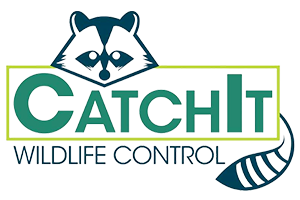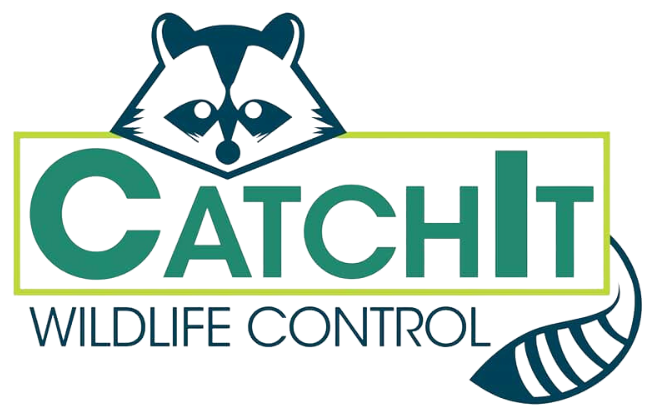The Truth Behind Domesticating Wildlife
The Legal and Practical Realities of Keeping Wild Animals in Illinois
Many people are fascinated by the idea of domesticating wild animals. These creatures often captivate our imaginations with their unique abilities and appearances. However, domesticating them is not a straightforward task.
The animals we will discuss have particular characteristics that make them interesting but also problematic to domesticate. For example, skunks are known for their potent defensive spray, while raccoons are recognized for their adaptability. Snakes, on the other hand, have specific environmental requirements that can make them difficult to care for. Finally, foxes are wild canids that possess behaviors very different from domesticated dogs. Each of these animals presents unique challenges that can make domestication a complex and risky endeavor.
Skunks
When contemplating the domestication of skunks, their notorious foul-smelling spray immediately comes to mind. This spray is not just a minor inconvenience but serves as a potent defense mechanism. While this may be useful for the skunk in the wild, it becomes a significant issue in a household setting. Skunks are also territorial by nature, cherishing their space and willing to defend it. The combination of the skunk's defensive spray and territorial behavior presents considerable challenges for anyone considering bringing one into their home.
In Illinois, it is generally illegal to keep a skunk as a pet. Skunks are considered potential rabies vectors, and permits for keeping them are rarely, if ever, granted to private individuals.
Raccoons
Raccoons, with their clever paws and adaptable nature, might seem like fun pets at first glance. However, these animals are opportunistic omnivores that can quickly turn your home into their playground, given the chance. Their sharp claws and teeth are not just tools for foraging; they can become weapons if the animal feels threatened or cornered. The challenge with raccoons lies in their knack for scavenging and causing property damage. Add to that their natural defenses, and you have an animal that's ill-suited for a domestic life.
Similar to skunks, raccoons are also seen as rabies vectors. Possession of a raccoon requires a special permit, usually only granted for educational or scientific purposes, and not for keeping them as household pets.
Snakes
Snakes, with their sleek bodies and mesmerizing eyes, can certainly be fascinating. But they are cold-blooded reptiles requiring very specific environmental conditions. A pet snake would need a precisely controlled environment, which is difficult to maintain. Also, snakes are often carnivorous, and some species are venomous, adding a layer of danger to their domestication. The challenges here are twofold: first, the exacting care requirements for their well-being and, second, the potential risk they pose to humans, especially if they are venomous.
Non-venomous snakes are generally allowed as pets, but Illinois requires a Herptile Special Use Permit for any individual wanting to own a venomous snake. These permits are issued under strict guidelines, including proper caging and handling protocols.
Foxes
Foxes, with their keen eyes and bushy tails, might look like larger, more exotic dogs, but their behavior is anything but domestic. Despite their captivating beauty and playful appearance, foxes are wild canids with natural hunting instincts. These instincts are deep-rooted, and no amount of training can entirely suppress them. They haven't undergone the centuries of selective breeding that dogs have, which makes them unpredictable and prone to wild behaviors like hunting and territorial marking. Domesticating a fox, therefore, would require overcoming their inherent wild tendencies, something easier said than done.
In Illinois, owning a fox is not permitted without a Fur-bearing Mammal Breeders permit, which is generally not granted for the purpose of keeping a fox as a pet. Even with a permit, there are specific cage requirements, and the animal's origins must be documented.
Birds
Birds, often considered for their beautiful plumage and ability to mimic sounds, might seem like less challenging pets compared to mammals or reptiles. However, many bird species are highly social and intelligent, requiring significant amounts of interaction and mental stimulation. In the absence of these, birds can develop behavioral issues, including feather plucking and incessant squawking. Some species are also capable of powerful bites, or have specialized diets, making them not as straightforward to care for as one might think. The challenges of bird ownership can range from providing adequate social interaction to understanding complex nutritional needs.
Domesticated bird species like canaries and parrots are usually legal to keep as pets, but native or migratory birds and raptors are protected by both federal and state laws. A permit is required for the possession of such species and is typically only granted for educational or rehabilitation purposes.
Opossums
Opossums, often seen as mysterious creatures of the night, have qualities that might intrigue those looking for a unique pet. They are relatively solitary animals, often misunderstood due to their somewhat intimidating appearance. Though their hissing may imply aggression, opossums are generally more inclined to avoid conflict. However, these creatures have a diet rich in insects, small animals, and plants, which can make them challenging to feed in a domestic setting. Additionally, opossums are known for their scavenging behaviors, which can lead to unwanted messes if they get into your trash or pantry.
The challenges of domesticating opossums include their specific dietary needs and natural scavenging behavior, which could lead to household disruptions. Moreover, they are nocturnal animals, meaning their activity peaks at night when most people are asleep. This misalignment of active hours can make interaction and care difficult. Also, though they are usually not aggressive, their natural instinct to hiss or show their teeth when frightened might not make them the most approachable pets for everyone in the family.
Possession of an opossum requires a permit from the Illinois Department of Natural Resources. These permits are rarely granted for the purpose of keeping them as pets and are usually issued for research or educational purposes.
It is important to note that legal requirements can change, and local ordinances may also apply. Failing to comply with state and federal regulations can result in fines, confiscation of the animal, and even criminal charges. Therefore, if you are considering domesticating any of these animals in the State of Illinois, it is imperative to consult relevant legal resources and authorities to ensure compliance with all laws and regulations.
Balancing Human Desires With Animal Welfare In Domestication
The allure of domesticating wild animals can be compelling. These animals captivate our imagination with their unique behaviors and appearances, tempting us to bring them into our homes. However, each of these animals presents its own set of challenges and considerations for domestication. The challenges are varied and often complex.
Understanding these inherent limitations and challenges is important for anyone contemplating such an endeavor. Attempting to domesticate a wild animal without recognizing these factors can result in an unhappy and potentially dangerous situation for both the animal and its caregivers. It is therefore imperative to be fully informed and prepared for the responsibilities and risks that come with attempting to turn a wild creature into a household pet.
While the idea of bringing a piece of the wild into our homes may be fascinating, it is fraught with challenges that should not be taken lightly. It's essential to have a thorough understanding of the animal's natural behaviors, needs, and risks involved in order to make an informed and responsible decision.
If you find yourself dealing with unwanted wildlife on your Central Illinois property, Catchit Wildlife Control is here to help. Our experienced team specializes in humane wildlife removal.
Contact us today for a swift and ethical solution.
900 Commerce Place
Suite 1001
Forsyth, IL 62535
CatchIt Wildlife Control


